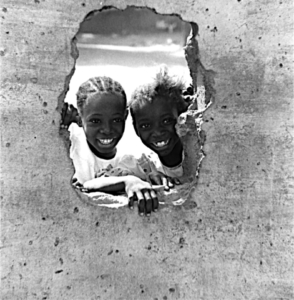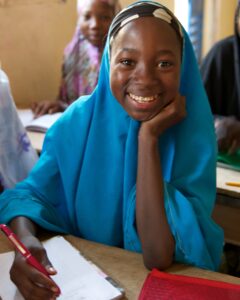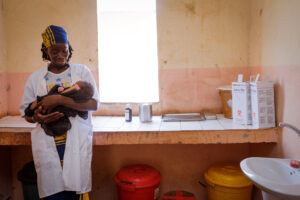by Omesh Prathiraja

Niger has the world’s highest birth rate. With an average of over seven children per woman, this demographic phenomenon presents opportunities, such as a growth in the labor force and a youthful population that can bring fresh perspectives and innovative ideas into various sectors in Niger. However, it also presents challenges for the nation’s future.
Niger’s soaring birth rate is a complex issue with far-reaching consequences. The birth rate in Niger stands at 7.2 children per woman, significantly higher than the global average of 2.5. This rapid population growth, fueled by cultural factors, poverty and limited access to education and contraceptives, has several profound implications for the nation.
Strain on Resources
Because its resources are limited, Niger faces challenges providing adequate food, clean water, and healthcare for its burgeoning population.
Healthcare and Medical Implications
The healthcare setting in Niger is under immense pressure due to the nation’s high birth rate. Prenatal care, maternal health, and access to family planning services are stretched thin, resulting in significant health risks for mothers and infants. The high birth rate in Niger is directly linked to several critical medical issues.
- Maternal Mortality Rate (MMR) –Niger has one of the highest maternal mortality rates in the world, 4,900 deaths per 100,000 live births, mainly due to complications during pregnancy and childbirth. High birth rates contribute to this problem by increasing the frequency of pregnancies and reducing the time between them.
Child Mortality – The country also faces a high child mortality rate, with 115 deaths per 1,000 live births, primarily due to preventable diseases and malnutrition. With a rapidly growing population, the healthcare system struggles to provide adequate care and immunization coverage to all children. The heightened risk of food scarcity and malnutrition can affect the physical and cognitive development of children, leading to long-term health issues.
Clean Water Helps Address Health Issues

By drilling wells and constructing water systems, Wells Bring Hope improves hygiene and sanitation. The clean water these wells provide decreases child mortality by reducing water-borne diseases.
Water systems that service rural health care facilities are also essential to reducing maternal and infant mortality, expanding access to immunizations and more. Wells Bring Hope’s fourth health clinic water system was recently completed in the village of Kouroungoussaou. Thanks to this system, taps and sinks were installed in all six treatment rooms at the clinic, which means greatly improved health care quality and hygiene practices for patients and health care providers. It also means that pregnant women will be more likely to choose to deliver in the clinic under the care of trained healthcare providers.

In addition, this project also resulted in a four tap stand in the village center, so all of the girls who live in Kouroungoussaou will be able to remain in school full time, greatly increasing the chance that they will marry and bear children later, factors that are strongly correlated with a reduced birth rate.
As with so many challenges Niger faces, easy access to safe water is key to a solution.
Sources:
The Conversation (https://theconversation.com/niger-has-the-worlds-highest-birth-rate-and-that-may-be-a-recipe-for-unrest-108654)
Population Reference Bureau (https://www.prb.org/)
The World Bank – Number of Maternal Deaths in Niger (https://data.worldbank.org/indicator/SH.MMR.DTHS?locations=NE)
Our World In Data- Child Mortality (https://ourworldindata.org/child-mortality)
United Nations – Niger (https://niger.un.org/fr)


